Light Unto Another World by Yakov Merkin
Light Unto Another World by Yakov Merkin [Amazon link] is the first of a planned 10 volume isekai series, with volumes 1 through 5 already published, and 6 through 10 recently crowdfunded on Kickstarter. Uriel Makkis is on his way to a deployment with the Israeli army when he finds himself pulled through a portal to another world and rapidly enmeshed in local controversy, the classic isekai setup.
For some readers, that might prompt the feeling of “oh no another isekai”. For others, it might be “what’s an isekai?” I think A Light Unto Another World is worth a read, but I also think it is helpful to take a detour to explore isekai in general in order to illuminate this particular one.
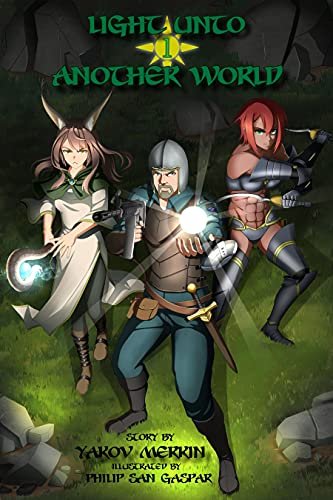
Light Unto Another World Volume 1 by Yakov Merkin Illustrated by Philip San Gaspar August 31, 2021
So what is an isekai? The Pulp Archivist and Ben Cheah lay it out for us:
Fantasy writers need to solve two problems. They need to create a believable fantasy world significantly different from ours that allows for fantasy elements. But this world and the people who live in it can’t be so fantastic that they alienate their audience.
The isekai story offers a neat solution.
‘Isekai’ is Japanese for ‘other world’ or ‘parallel world’. In this other world, the author is free to dream up societies, fantasy races, magic and other fantastical elements without being hemmed in by such minor things as history or the laws of physics. To create a connection with modern readers, the author plucks a character or a group of characters from the real world (typically 21st century Japan) and plunks them into the parallel world. Adventures and hijinks follow.
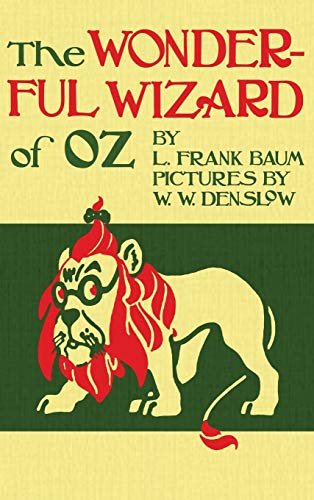
Right now, isekai is most often associated with Japanese light novels, manga, or anime, but but there are plenty of examples in the world of English fiction as well. You probably know some of them already. While the word comes to us through Japanese, the basic setup was widely used in the pulp era.
Edgar Rice Burroughs’ less well remembered creation John Carter of Mars followed this formula, with Carter starting off in an Arizona cave instead of modern Japan. L. Frank Baum’s The Wizard of Oz also moved from the very middle American Kansas to the magical land of Oz.
The kind of story we now call an isekai is thus always rooted in whatever the present and familiar are for the author and the intended audience. As that present slips away into the unfamiliarity of the past, the immediacy and punch of isekai slips away as well. However, the benefit of this is that isekai is a kind of story that can always be told anew, created freshly for new audiences who won’t intuitively grasp the context of older examples.
However, one of the downsides of the new pulp era in which we find ourselves is that the ease of internet publishing and a semi-global audience means that you can find endless examples of any kind of story, and it can seem like they all blend together after a while.
This is especially so for us in the early twenty-first century, as all genre fiction has passed through the great filter of D&D, which took all of the weird and wondrous fiction of the early to mid-twentieth century and mashed it all together. Before Gygax, fiction influenced a game. After him, a game influenced fiction.
Isekai in particular have a tendency to feel like generic D&D clones. So, if you want to make something that stands out in a crowded field, I think the solution is a return to particularity. John Carter was a Virginia fighting man, and like Burroughs in real life, Carter spent time in Arizona as a soldier during the closing of the frontier. Uriel Makkis is a soldier too, and like his creator he served in the Israeli Defense Forces. In addition, Uriel is an observant Jew. Unexpectedly thrust into a new world, Uriel seeks solace in the familiar rituals of his religion, one of his few links to his lost home.
Reading some other reviews of Light Unto Another World, I am left with the impression that some readers have never met a genuinely religious person in their life. I am not Jewish, but I do appreciate Uriel’s musings on how he is to live his religion in the place he finds himself. Were I in his place, I too would want to know how I could be present at the sacrifice of the Mass or cleanse myself in the sacrament of Reconciliation. These are not incidental matters for me, and likewise neither are they for Uriel.
For me, it is a bit like meeting a distant cousin for the first time. I can see a basic similarity in Uriel, but I don’t always understand all of the things he does. Uriel’s identity is centered upon his religion, and it forms who he is. Thus, I find it natural that he uses his religion to center himself, and to remind himself of what he must do.
In particular, as Uriel understands what has happened to him and what [or who] has called him to this new world, Psalm 34 comes to my mind.
I will bless the LORD at all times;
His praise shall be always in my mouth.
My soul will glory in the LORD;
let the poor hear and be glad.
Magnify the LORD with me;
and let us exalt his name together.
I sought the LORD, and he answered me,
delivered me from all my fears.
Look to him and be radiant,
and your faces may not blush for shame.
This poor one cried out and the LORD heard,
and from all his distress he saved him.
It is pretty clear that Uriel has been sent to answer the cries of the poor. I’d kind of like to see how he does it.
You can find Light Unto Another World on Amazon. The author’s website is https://yakovmerkin.com/
I was provided a review copy by the author
My other book reviews | Reading Log
Other isekai
Three Hearts and Three Lions by Poul Anderson
Dungeon Samurai by Ben Cheah
Gemini Warrior by JD Cowan
Forgotten Ruin by Nick Cole and Jason Anspach
Ice and Monsters by Peter Nealen
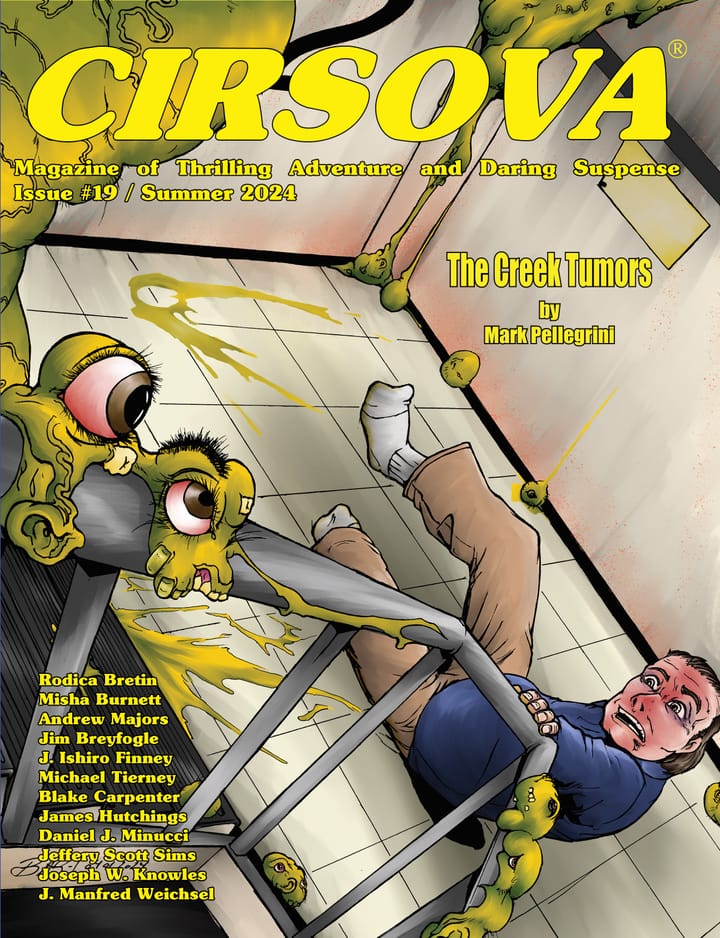
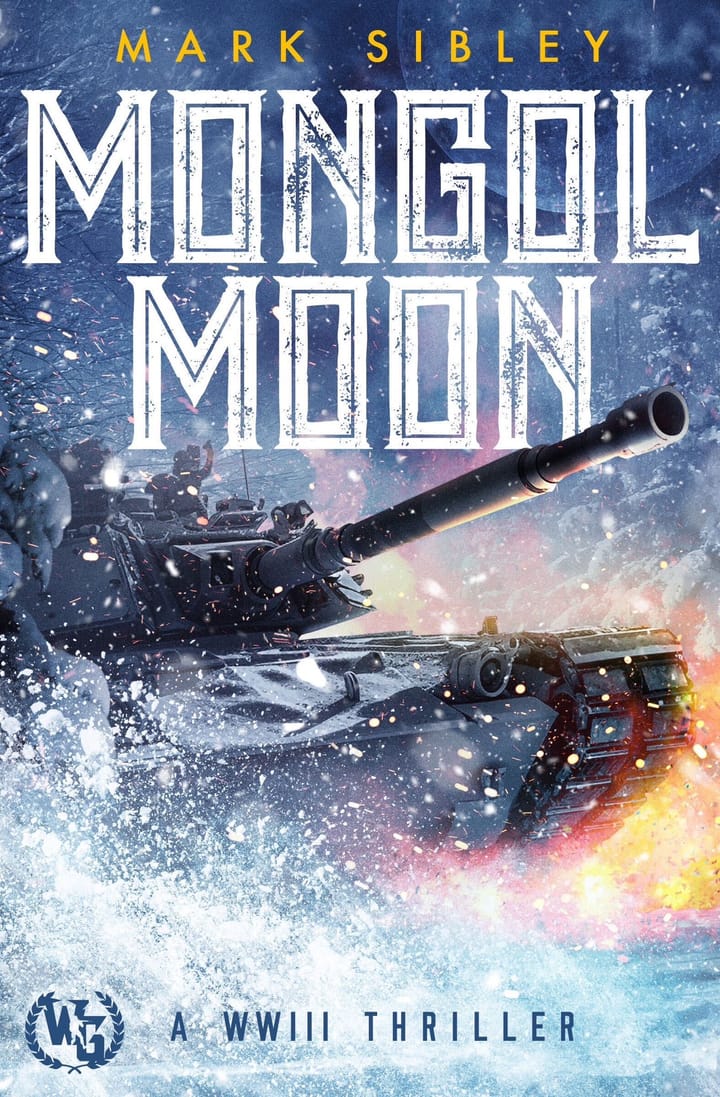
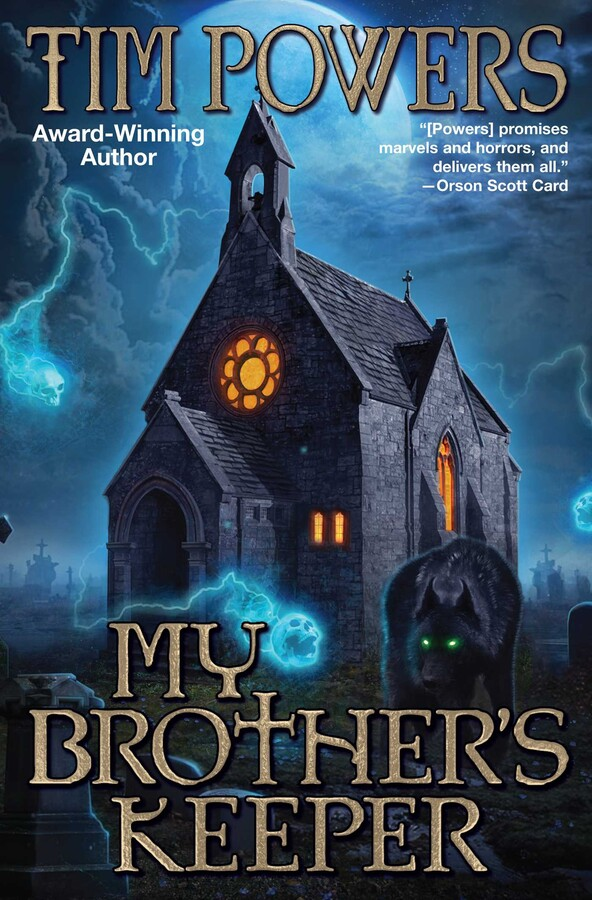
Comments ()